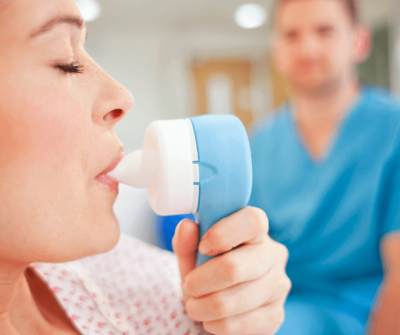
Several hospitals across the country have recently suspended the use of gas and air, due to prolonged exposure posing potential health and safety concerns for midwives and hospital staff.
Gas and air (known as Entonox) is a medical gas comprised of 50% oxygen and 50% nitrous oxide. The NHS maternity survey revealed that 76% of women used gas and air during labour, making this one of the most popular pain relief options. It is therefore unsurprising that the suspension has evoked great criticism from expectant mothers.
The BBC recently reported on several mother’s stories about their experience without gas and air during labour, and it was acknowledged that this was very traumatic and stressful. When Leigh Milner gave birth to her son, Theo, at Princess Alexandra Hospital in Harlow, she had to labour with just paracetamol. She describes her labour as ‘absolutely unbearable’ with the pain being so intense that she was in and out of consciousness.
The mother was warned beforehand that gas and air was unavailable, however she was told that there would be other pain relief. Unfortunately, as Mrs Milner’s labour progressed very quickly after being induced, she was told that there was no time for an epidural. The new mother was desperate and her whole body was shaking. She tells the BBC that she was begging for pain relief but that the only thing they could give her was paracetamol. Mrs Milner suggests that mothers in labour should receive more advice about this prior to birth.
Gas and air is not dangerous for mothers or babies, but prolonged exposure could be a potential risk for medical staff. Acute nitrous oxide exposure can lead to anaemia due to B12 depletion.
Some hospitals have therefore introduced the suspensions to safeguard medical staff that work in maternity units for extended periods of time. This became apparent after air quality tests in some maternity units revealed unsafe levels of nitrous oxide.
Dr Suzanne Taylor from the Royal College of Midwives has said:
“Too many of the buildings that house maternity services are simply not fit for purpose. The issue has arisen because of poor ventilation in delivery suites and labour wards, but this is just the tip of the iceberg. We know of crumbling walls; ceilings being held up by props and even sewage flowing onto wards. These aren’t cosmetic issues. We need proper investment in maternity services, including the brick and mortar.”
A spokesperson for NHS England has since reported that “NHS England have been working with the trusts where gas and air supplies have been affected due to the differing and localised issues – this is not a widespread issue and patients should continue to access services as normal.”
This confirms that the suspension is temporary, and that affected hospitals should begin to reinstate the gas and air once ventilation issues have been resolved. NHS England have further advised that hospitals should only suspend gas and air “as a last resort.”
Watford General hospital has installed air purifiers to break down the nitrous oxide-laden air, whilst the Princess Alexandra Hospital has purchased machines which take in the exhaled gas and break it into nitrogen and oxygen. However, there is a scarcity of such machines.
As indicated by Dr Suzanne Taylor, this problem has arisen from the repeated failure to invest and prioritise the National Health System. This issue should not be patched up, but permanently resolved to ensure that labouring women are not deprived of a relied upon and trusted method of pain relief.
If you feel that you or your baby’s treatment was compromised during your pregnancy or labour, please do not hesitate to contact our specialist Medical Negligence team who will offer confidential and free initial advice.
Article written by Nancy Tebbutt